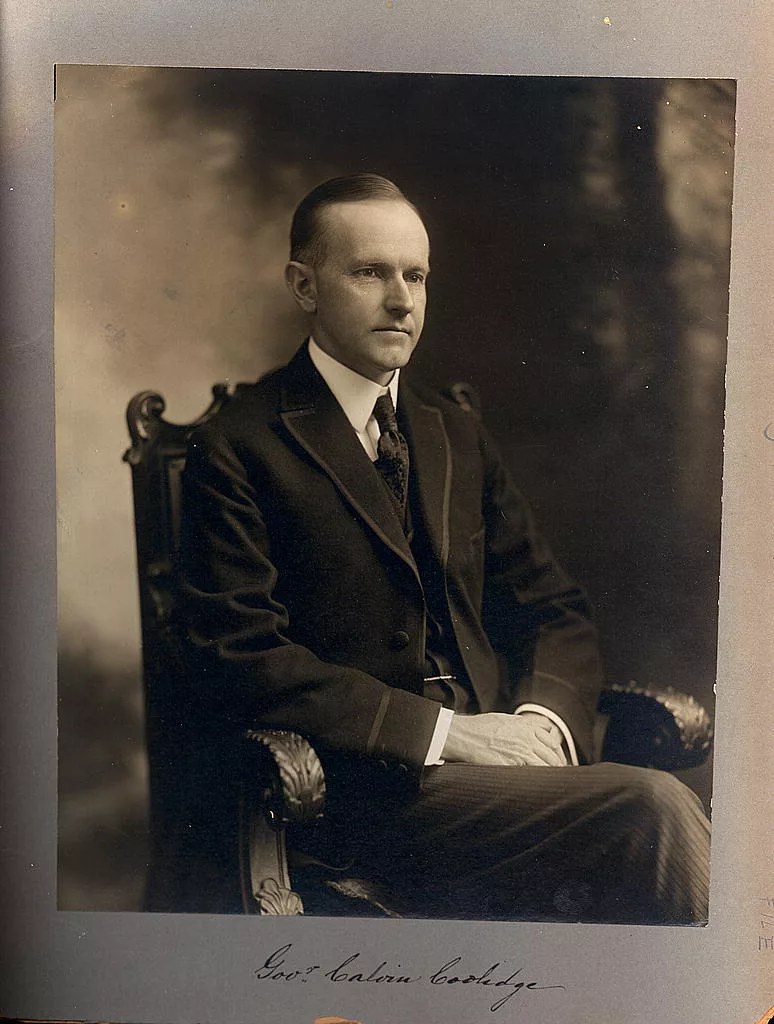Calvin Coolidge served as the 30th President of the United States, from 1923 to 1929.

Here are some key points about his presidency and his legacy:
- Early Life and Career: Coolidge was born on July 4, 1872, in Plymouth Notch, Vermont. He graduated from Amherst College and later pursued a career in law. Coolidge served in various political positions in Massachusetts, including as governor, before becoming vice president.
- Assuming the Presidency: Coolidge became President following the sudden death of President Warren G. Harding in 1923. He was visiting his family home in Vermont when he received news of Harding’s death, and he took the oath of office as president in the early hours of August 3, 1923, administered by his father, who was a notary public.
- Leadership Style: Coolidge was known for his quiet and reserved demeanor, earning him the nickname “Silent Cal.” He was known for his frugality, small government philosophy, and commitment to fiscal conservatism. Coolidge advocated for limited government intervention in the economy and believed in the importance of free-market principles.
- Economic Policies: Coolidge’s presidency coincided with a period of economic prosperity known as the “Roaring Twenties.” He favored policies that promoted business growth and reduced government regulation. Coolidge signed the Revenue Act of 1924, which reduced income tax rates and promoted economic growth.
- Foreign Policy: Coolidge’s foreign policy focused on maintaining stability and avoiding entanglements in overseas conflicts. He signed treaties to limit naval armaments and worked to improve relations with Latin American countries.
- Civil Rights: Coolidge’s record on civil rights is mixed. While he supported some civil rights initiatives, such as the Dyer Anti-Lynching Bill, he also signed the Immigration Act of 1924, which severely restricted immigration, particularly from Southern and Eastern Europe.
- Decision Not to Seek Reelection: Coolidge chose not to seek reelection in 1928, announcing his decision with the famous statement, “I do not choose to run for President in 1928.” He was succeeded by Herbert Hoover.
- Legacy: Coolidge’s presidency is often remembered for its economic prosperity and adherence to conservative principles. However, his administration also faced criticism for its limited response to social issues, including the Great Mississippi Flood of 1927 and the agricultural crisis of the late 1920s.
Overall, Calvin Coolidge’s presidency is characterized by his commitment to limited government, fiscal conservatism, and economic prosperity during the 1920s.
He remains an important figure in American political history, representing a distinct era of American politics and governance.